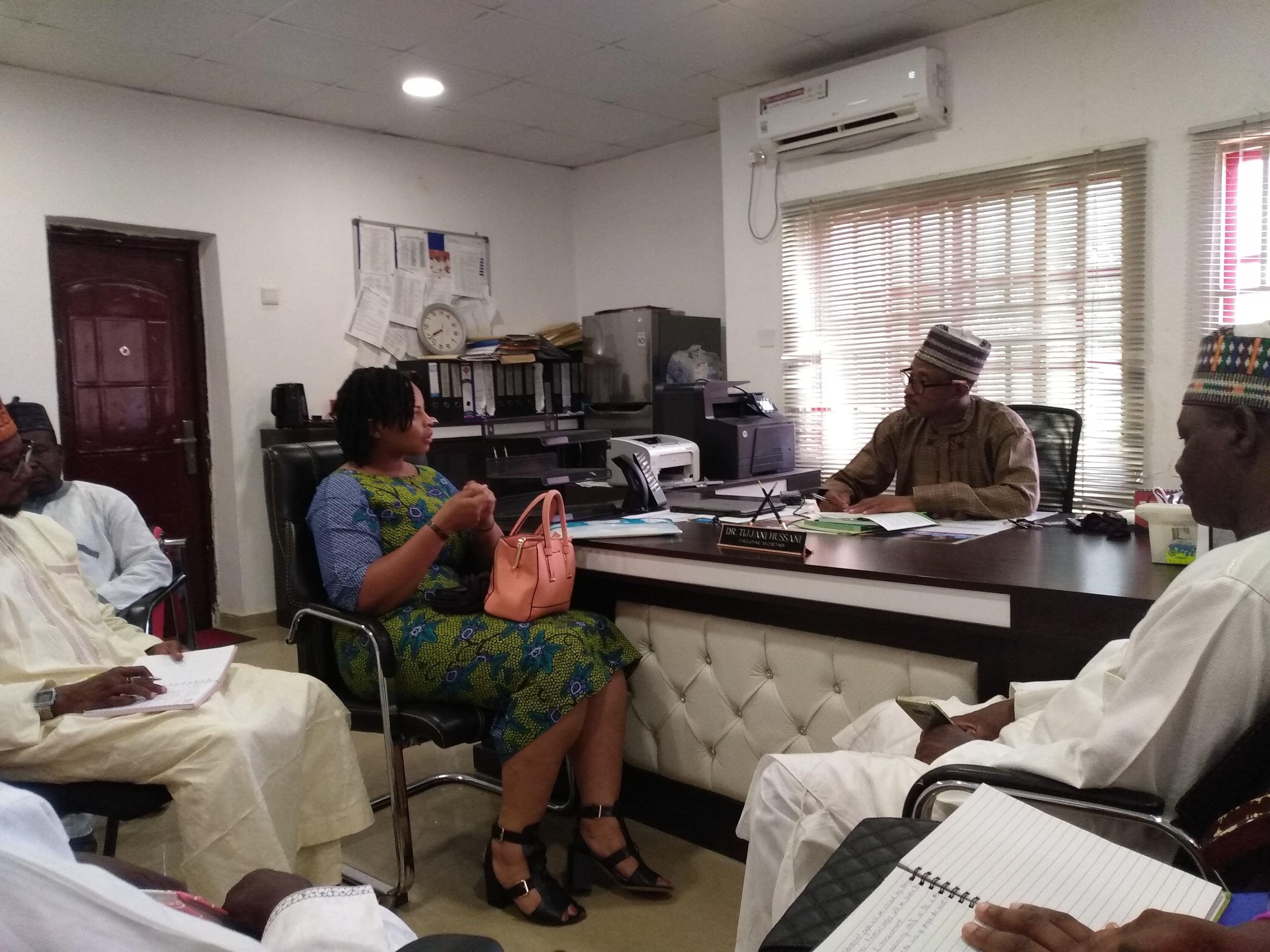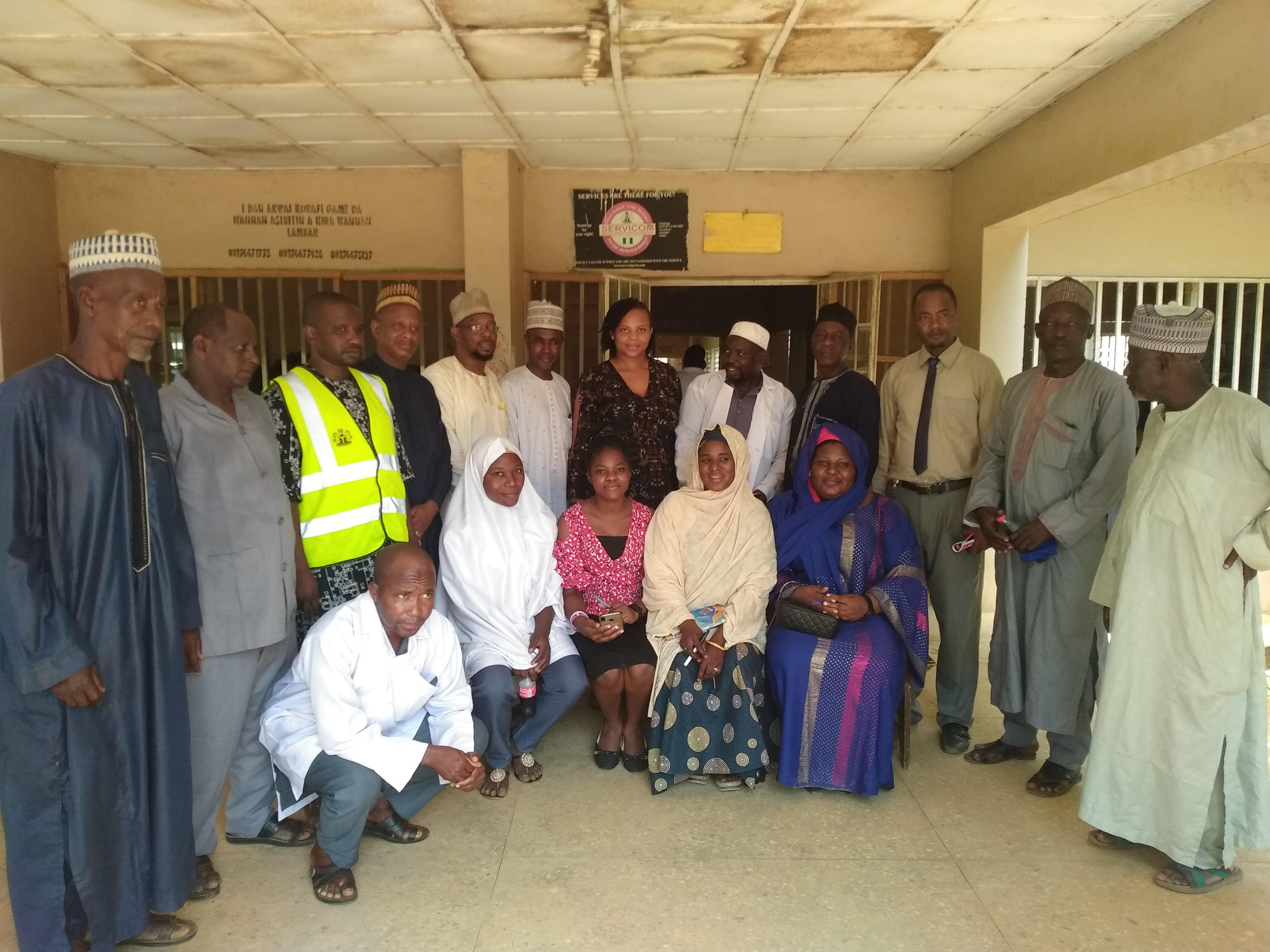ANALYSIS: X-Raying Kano’s implementation of PHC Under One Roof policy
Kano has made significant progress in the implementation of the PHC Under One Roof (PHCUOR) policy, however an “administratively autonomous and self-accounting Governing Board” is yet to be constituted for the State PHC Board; funding for PHCs is still domiciled at the State Ministry for Local Government while the respective Local Governments are yet to transform their PHC departments to Local Government Health Authorities (LGHAs), amongst other implementation gaps

The Primary Health Care Under One Roof (PHCUOR) policy is an initiative of the National Primary Health Care Development Agency (NPHCDA) aimed at ending the fragmentation of the Primary Health Care (PHC) system in Nigeria by ensuring the integration of all PHC services under one authority, i.e the State Primary Health Care Management Board (SPHCMB). PHCUOR is built around the principle of three ones: One Management, One Plan and One Monitoring and Evaluation, which is in accordance with the provisions of the 2014 National Health Act (NHAct).
Although Kano state has since 2012 established a SPHCMB i.e the Kano State Primary Health Care Management Board (KSPHCMB), in line with the established national guidelines, the Kano PHC Board is yet to have an administratively autonomous and self-accounting Governing Board; funding for Primary Healthcare Centres (PHC) is still domiciled at State Ministry for Local Government while the respective 44 Local Government Areas (LGAs) of the state are yet to transform their PHC departments into Local Government Health Authorities (LGHAs), in accordance with the PHCUOR policy, amongst other implementation gaps.
Since 2015, NPHCDA has conducted an annual Implementation Scorecard for PHCUOR policy across the 36 states of the federation including Kano. The annual scorecard development exercise is aimed at helping states identify specific gaps across the 9 pillars of PHCOUR policy implementation namely, governance and ownership; legislation; funding sources and structure; human resources; and minimum service package. Other pillars are systems development; office setup; operational guidelines and repositioning.
Therefore, the scorecard is generally meant to help the respective state governments improve their PHC systems while also serving as an advocacy tool for civil society organizations in their engagement with relevant policymakers involved in the implementation of PHCUOR policy, particularly state governors. Moreover, recommendations from the scorecard guide interventions by development partners interested in supporting the states in the implementation of the PHCUOR policy.
Recently, a scorecard assessment team from NPHCDA and other partners working on the implementation of the policy were in Kano state for the 5th PHCUOR scorecard assessment exercise. The assessment team included partners namely development Research Project Center (dRPC) under the Partnership for Advocacy in Child and Family Health at Scale (PACFaH@Scale) project; Medical Women Association of Nigeria – PACFaH@Scale (MWAN-PAS); the Nigeria Governors Forum (NGF); Health Reform Foundation of Nigeria (HERFON); as well as the Network for Health Equity and Development (NHED), amongst others.
The assessment was carried out at state and sub-state levels by the NPHCDA team headed by Lead Assessor Uche Eberi. At state level, the team of assessors held meetings with key stakeholders such as the Permanent Secretary at the Kano State Ministry of Health, Usman Bala Muhammad (who met the team in place of the Honourable Commissioner of Health) and also the executive secretary of KSPHCMB, Dr Tijjani Hussaini. The team administered the assessment tool to the executive secretary, his management team as well as the Board’s monitoring and evaluation officer.
For the sub-state level assessment, the tool was administered in 2 layers – across 3 selected LGHAs (PHC departments) and PHC facilities, respectively. The selected PHC departments were those of Dala, Gabasawa and Bunkure LGAs (one LGA for each of the 3 senatorial districts of Kano) while three PHCs were assessed across the same LGAs. For Kano North senatorial district, the tool was administered at Zakirai PHC of Gabasawa LGA while for Kano Central, the assessment was conducted at Dala MPHC of Dala LGA. The third and final PHC level assessment was carried out at Bunkure PHC of Bunkure LGA in Kano South.
While welcoming the team, ES Dr Tijjani Hussaini said the Kano State PHC Board was making progress in the implementation of the PHCUOR policy, adding that a lot had been achieved by the state in that respect. He then directed Board’s director in charge of planning, Bashir Sanusi, to work with the assessment team at state and sub-state level to ensure adequate data was provided across the 9 pillars of the PHCUOR policy. Although operations of the Kano state PHC system was largely aligned with the PHCUOR policy, at both state and sub-state levels, there were still important gaps across the 9 pillars.

Legislation for Kano PHC Board
The PHCUOR pillar on legislation says states of the federation should have a SPHCMB law that provides a clear legal framework for delineation of roles and responsibilities as well as make provision for the establishment of LG Health Authorities (LGHAs) adding that the respective states should develop regulations for operationalizing the law.
Although Kano has since 2012 established the said SPHCMB, a Governing Board, as contained in either the law establishing the agency or the PHCUOR policy, has never been constituted for the PHC Board. The Governing Board is meant to empower KSPHCMB to become “an administratively autonomous and self-accounting” institution. Also, the law does not recognize LGHAs and the already existing zonal structures of the PHC Board.
Moreover, the law establishing Kano PHC Board is deficient and unclear in terms of the roles of the Governing Board and management team as well as funding ratio between state and local governments. The law is also lacking in oversight role of the State Ministry of Health (SMoH) and makes no provisions for the establishment of Ward Development Committees (WDCs).
Even though Kano State House of Assembly law number of 7 of 2012 which established the KSPHCMB had recently been reviewed and aligned with current PHCOUR policy of the Federal Government of Nigeria, by the 8th Kano State House of Assembly (2015-2019), the reviews and recommendations are yet to be passed into law.
MSP, Funding and HRH
According to the PHCUOR policy, states of the federation are required to ensure healthcare facilities are classified on the basis of the minimum service they are capable of rendering as well as determine minimum resources required for each of the classified facilities to function; they are also to ensure the Minimum Service Package (MSP) for the facilities are costed. Although PHC facilities in Kano state have been classified, and the MSP has been domesticated, it does not have robust investment plan and is yet to be shared state-wide.
Regarding funding sources and structure of the PHC system in Kano, the Kano PHC Board has limited financial autonomy, PHC staff salaries and training funds are yet to be transferred to the Board; PHC programmes for Malaria, TB, Nutrition are also yet to be transferred to the Board. Moreover, the policy says adequate resources and capacity should be provided for the management and planning for Human Resource for Health (HRH) at state and sub – state levels and that PHC staff should be moved from the LGAs to the Board.
However, although the Kano Assembly has appropriated for the recruitment of HRH in the state’s 2018 budget and said the PHC Board should be responsible for transfers and partly, for employment, the recruitment exercise is yet to take place, despite a serious HRH gap and the availability of hundreds of qualified but unemployed health workers in the state. Moreover, all PHC staff at sub-state level are not on the Board’s payroll; they are under payroll of the Ministry for Local Government, consequently, the Board has limited control over them.
Repositioning the Kano PHC system
Regarding the pillar on repositioning, the PHCUOR policy requires PHC programmes at the Ministry of Health and PHC functions at Ministries for Local Government, Women Affairs, Finance and Education to be moved to the State PHC Board while staff of respective LGA PHC departments be moved to the Local Government Health Authorities (LGHA). It adds that new roles and responsibilities of the Ministry of Health be identified and agreed upon.
However, most of the LGHAs and PHCs do not have job descriptions, PHCUOR implementation guidelines, MSP, investment plans and operational guidelines. And whereas some of the programs such as Routine Immunization, Drugs Revolving Fund (DRF) have been completely moved to the PHC Board others such as Nutrition, Family Planning and Free Maternal, Newborn Child Health (FMNCH) have only been partially moved to the Board.
Assessment Team’s Asks
Speaking during a debriefing session at the Kano State Ministry of Health, Lead Assessor Uche Eberi called on the state governor to constitute a Governing Board for the PHC Board as well as institutionalize Local Government Health Authorities (LGHAs) across the 44 LGAs and upgrade PHC facilities under the LGHAs to meet minimum standards, as enshrined in the national guidelines. The assessment team also called on Kano to develop an organogram, in alignment with national guidelines and the nomenclature on legislation for PHCUOR policy.
Furthermore, the team called for the alignment of the Kano PHC Law with the PHCUOR guidelines so as to change the nomenclature of LGA PHC departments to LGHAs; delineation of the roles of the PHC Board’s Governing Board from that of the management team; clarifying of oversight functions of the SMoH; as well as establishment or activation of Ward Development Committees (WDCs). The assessors also urged for the development of a robust investment plan targeted at achieving the MSP and the subsequent dissemination of the MSP to all LGHAs and PHC facilities adding that PHC facilities should have their MSP clearly pasted within their facilities.
The team further recommended for the transfer of all PHC funds including staff salaries, training funds to the PHC Board, so as to strengthen its financial autonomy; the transfer all PHC programmes for Malaria, Nutrition and TB to the Board as well as the institutionalization of the three ones framework i.e ‘One Management, One Plan and One Monitoring and Evaluation’, across the LGHAs and PHC facilities to reduce fragmentation of work plan, especially at the facility level. The team likewise called for the setting up of independent offices with requisite infrastructure (water, power) and equipment (computers, printers, internet access) for the respective Kano LGHAs.
The NPHCDA equally called for the dissemination and institutionalization of the PHCUOR policy implementation and operational guidelines to all LGHAs and PHC facilities; the creation and institutionalization of human resource units at PHCs; as well as establishment of human resource information system for management and planning of PHC human resources for health, which will facilitate the integration of all PHC staff into Kano PHC Board’s payroll. The team also advised for the dissemination and institutionalization of the use of job descriptions across the PHC Board, particularly at the level of LGHAs and PHC facilities.
Kano’s Commitment
While responding to the various recommendations, Permanent Secretary at the Kano SMoH, Usman Bala Mohammed said Kano had been working tirelessly to align its policies with the provisions of the PHCUOR policy, noting as some of their major challenges in the process, the transfer of staff salaries to the Kano PHC Board and the review of the state’s PHC law. He also stated that they had already submitted a memo to Governor Abdullahi Umar Ganduje, in respect of the Governing Board for the Kano PHC Board.










